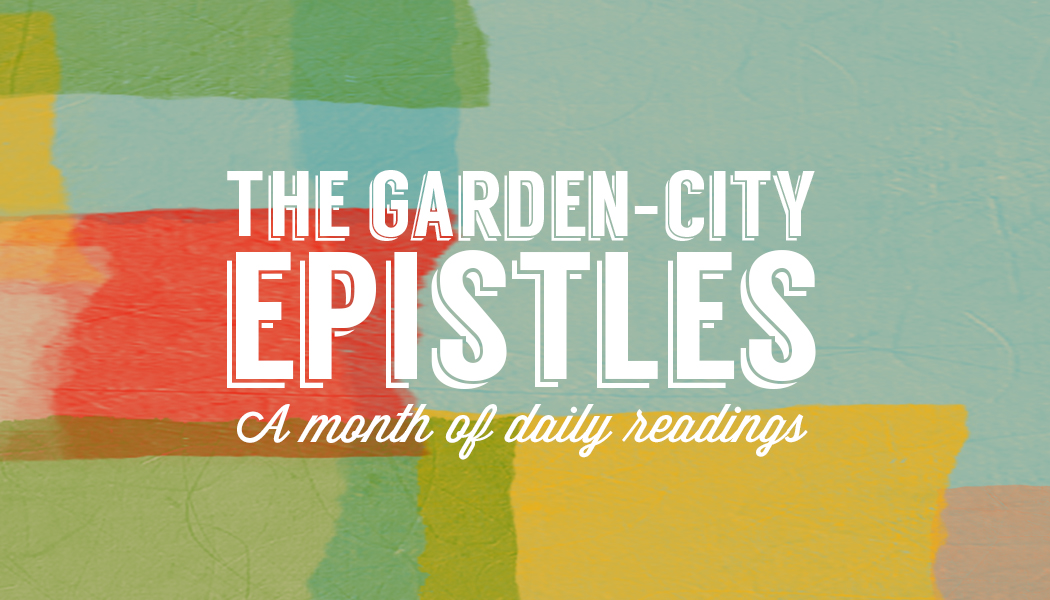This letter was written to Ricky Olmos—musician, photographer, reporter, and sometime entrepreneur.
Anyone can see you’ve got an eye for the city. There’s something inside you that longs for the thrum and excitement of broad streets and urban delights. Even in our little town, I see you wandering with an eye toward expansion, greatness, and continued development. That’s a gift. You’re a person of possibilities pursued. But I’d like to offer an illustration about how you might consider aiming your civic fantasies.
Envision looking down on a model city (like Lego) from above. Now imagine you have an idea to help this city and heal the world. That idea is represented by a glass cube. If you hold the cube to your eye, you see it’s ruby-colored. Now, put that cube over top of—say—City Hall. I want you to see your cube—your idea—sliding over City Hall, like a glove over a hand.
What happens now?
Not much, truthfully. Your idea is still ruby-colored, but because it’s now been placed over top of another building in the model city, it’s also slightly darker. In fact, you have to strain to see it’s ruby-colored at all.
Your idea has grown dim.
What would happen if you place your idea over—say—a bright light? There’s one in the middle of the model city. Actually, there are several. As you look closer, you realize there are key locations in the model city that are not dark, but are glowing brilliantly.
Quickly—take your idea-cube and move it over top of the bright light. What happens?
Your idea explodes! Your ruby-colored idea is now on fire. It’s a beacon of creative goodness in a city that desperately needs light.
Ok—thanks for playing. Have you figured out what the light is? Easy peas-y. It’s the people of God.
God has given you insights, ambitions, and fervor to heal the world. You’ve got dreams and plans for how to draw together the resources of Creation, bring wise order to the garden, and release human potential. The trouble is, every time you pitch your ideas they never seem to gain traction. Even if people like your ideas, when the time to implement those ideas comes around, your ideas seem dimmer than they were when you first felt the spark of God’s inspiration.
There are many people who will applaud your ideas, but they see everything through the lenses of progress and profit. Christian theologian Stephen Um says, “the optimism of the new urbanist is based in part on the reality that cities are ideal places for human flourishing.”[1] This sounds great, except it’s wrong. Our cities are cracked and broken, lesser versions of their nobler, holier, ideal. Um continues, saying “[our cities simply] cannot fulfill us in any ultimate sense.”[2]
But you don’t have to pitch your ideas to strangers, or through official channels, or even to “the powers that be.” God has called his people to be a light in the darkness, to live as a City within the city. Cities can either help us flourish or make us famished, depending on the energizing power within. There is darkness in the city, but light also. You’ve got to decide where you’ll make your investment. And I don’t mean to suggest that you should focus all your energy on church involvement to do church-y things for churched people. On the contrary, you must always be the voice within the church reminding others that light shines brightest in the dark. You can shine a light in the dark, but you can also shine a light into your eyes and lose your sight entirely. You must remind your church that her light is for the world, not for herself.
Go to your friends. Go to your peers. Go to your church. Take your light and add it to ours. Let the combined luminescence of God’s people explode across the city. Don’t waste time convincing the disaffected that there’s a spiritual malaise in our city. Just begin to counteract hopelessness with promise, despair with hope, and fragmentation with wholeness.
[1] Um and Buzzard, Why Cities Matter, 52.
[2] Ibid.
fossores
Related posts
Categories
Category Cloud
Tag Cloud
Recent Posts
- Victors and Victims November 6, 2018
- 3 Hacks for Happiness October 29, 2018
- Hope Against Death September 20, 2018
- The Shape Of The Cross September 19, 2018


